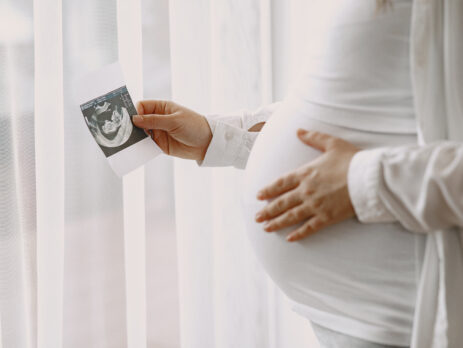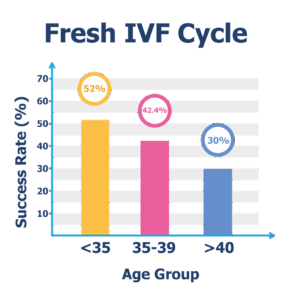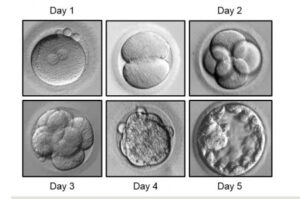The Impact of Age on IVF Success Rates: What You Need to Know

In vitro fertilization (IVF) is one of the most widely used and successful assisted reproductive technologies available today. For those who struggle with natural conception, IVF offers a hopeful pathway to building a family.
At SC Fertility Center, we understand that every fertility journey is unique — and one of the most common questions we hear is: “How does age affect IVF success rates?”
Let’s explore the science behind IVF, the role age plays, and how you can maximise your chances of success.
📌 Table of Contents
- What Is In Vitro Fertilization?
- Why Does Age Matter in IVF?
- IVF Success Rates by Age
- Embryo Development Stages in IVF
- How Many Eggs Are Retrieved at Different Ages?
- Enhancing IVF Success: What You Can Do
- Why Choose SC Fertility Center
- FAQs About IVF and Age
- Conclusion
🔬 What Is In Vitro Fertilization?
IVF (in vitro fertilization) is a complex medical procedure where an egg is fertilized by sperm outside the body, in a controlled laboratory environment. Once fertilized, the embryo is transferred to the uterus.
IVF Treatment Steps
- Ovarian Stimulation – Hormones stimulate the ovaries to produce multiple eggs.
- Egg Retrieval – Eggs are extracted from the ovaries using a minor surgical procedure.
- Fertilization – Sperm is introduced to the eggs for fertilization in vitro.
- Embryo Culture – Embryos are monitored over 3–5 days.
- Embryo Transfer – A viable embryo is placed into the uterus for implantation.
💡 Read more on our IVF Treatment Services to learn how we tailor the process for each patient.
⏳ Why Does Age Matter in IVF?
A woman’s age directly influences her fertility — both in natural conception and with assisted reproductive technologies like IVF. This is primarily due to the decline in both egg quantity and egg quality as women age.
Age Impacts:
- Ovarian Reserve – Women are born with all the eggs they’ll ever have.
- Chromosomal Health – Older eggs are more likely to have chromosomal abnormalities.
- Implantation Rates – Egg quality affects embryo development and implantation.
The average woman starts seeing a significant decline in fertility in her mid-30s, with a steeper drop after age 40.
📊 IVF Success Rates by Age
The success of IVF is closely linked to age. The younger the woman, the better the chances of producing high-quality eggs and embryos.
Age Range | IVF Success Rate per Cycle |
Under 35 | 44–48% |
35–37 | 38–41% |
38–40 | 26–30% |
41–42 | 10–20% |
Over 42 | 5–10% |

📌 These are general statistics. Success rates can vary based on health, diagnosis, and fertility clinic protocols.
If you’re over 35 and considering IVF, now is the best time to consult.
🧬 Embryo Development Stages in IVF
Embryo quality is a critical factor in IVF success. Understanding the development stages can provide insight into how doctors select embryos for transfer or freezing.
Stages of Embryo Development
Day | Stage | What Happens |
Day 1 | Zygote | Single-cell fertilized egg |
Day 2 | 2–4 Cell Stage | First divisions take place |
Day 3 | 6–8 Cell Stage | More rapid cell division |
Day 4 | Morula | Compact cell mass forms |
Day 5 | Blastocyst | Fluid-filled cavity; ideal time for transfer or freezing |

High-quality blastocysts (Day 5 embryos) have the greatest chance of resulting in a healthy pregnancy.
🥚 How Many Eggs Are Retrieved at Different Ages?
The number of eggs retrieved during IVF varies by age and ovarian health.
Age | Average Eggs Retrieved |
25–30 | 12–20 eggs |
31–35 | 10–15 eggs |
36–40 | 6–10 eggs |
Over 40 | 3–6 eggs |
This decline is natural and expected. Many older patients opt for egg donation or embryo banking to increase chances of success.
🧩 Enhancing IVF Success: What You Can Do
While age is a factor you can’t control, there are strategies to enhance your IVF success:
✅ Pre-IVF Preparation
- Eat a balanced, anti-inflammatory diet
- Maintain a healthy weight
- Take fertility supplements (as advised by your doctor)
- Minimise alcohol, tobacco, and caffeine
- Reduce stress levels through yoga, therapy, or meditation
✅ Clinical Enhancements
- Preimplantation Genetic Testing (PGT)
- ICSI (Intracytoplasmic Sperm Injection)
- Blastocyst Transfer
- Frozen Embryo Transfer (FET) for improved timing
Curious about these options? Learn more about our fertility services.
⭐ Why Choose SC Fertility Center?
We are proud to offer world-class IVF programs backed by:
- High Success Rates
- State-of-the-Art Technology
- Personalised Fertility Plans
- Embryo Banking and Freezing
- Multilingual Support including Spanish, Arabic, Greek, and Portuguese
Our team is committed to compassionate care from your first consultation through every IVF cycle.
👨⚕️ Book a fertility consultation today with one of our experienced specialists.
🎯 Conclusion
Fertility is deeply personal, and while age plays a major role in IVF success rates, it’s not the only factor. With the right support, technology, and medical guidance, many women go on to achieve successful pregnancy via IVF in their late 30s and even 40s.
At SC Fertility Center, we walk beside you on every step of your journey — whether it’s your first consultation or your third IVF cycle. If you’re thinking about IVF, there’s no better time than now to explore your options.
🔗 Schedule a consultation: Contact SC Fertility Center
🔗 Learn about our success rates: IVF Programs and Results
🔗 Explore Egg Freezing & Embryo Banking: Cryopreservation Options
Note: This blog is for informational purposes only and does not constitute medical advice. Please consult with a healthcare professional for personalized recommendations.
❓ FAQs About IVF and Age
The ideal age range is under 35, where egg quality and quantity are highest. However, many women in their late 30s and early 40s also experience success, especially with tailored protocols.
While some women achieve pregnancy on the first cycle, others may require 2–3 cycles depending on age, diagnosis, and embryo quality.
Yes, it is possible, though success rates decrease. Some patients also consider using donor eggs or embryo adoption to increase chances.
One full cycle typically lasts 4–6 weeks, from ovarian stimulation to pregnancy test.
With careful screening and monitoring, IVF can be safe. However, risks like miscarriage and chromosomal abnormalities are higher.
Absolutely. Egg freezing is ideal for women under 35 but still beneficial up to age 40. Learn more on our Egg Freezing page.
Positive signs include mild cramping, bloating, and spotting. A beta hCG blood test confirms pregnancy 9–12 days after embryo transfer.
Yes, especially when multiple embryos are transferred. However, single embryo transfer is now standard to reduce the risk of multiple pregnancies.



